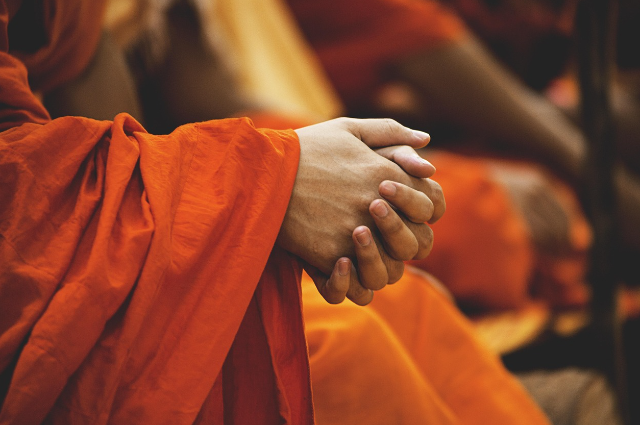
Image by Pexels from Pixabay
The God Gap
The world has changed more in the past 200 years than in entire eras before it. Since the Industrial Revolution, humanity has gone from coal mines to quantum computing, from lighting fires with stones to editing genes. As we invent and re-engineer the world around us, the need to rely on higher powers has visibly shrunk.
We once worshipped what we feared and depended on fire, water, air, the sun. Religion was how we made sense of chaos, suffering, hope, and morality. Today, we use science to do much of that. We can predict the weather, cure diseases, and even create life in labs. So the question hangs heavy: where does religion fit now? Is it the beginning of something new, or the beginning of the end? Religion as the First Architecture of Civilization Major religions shaped the course of human history not just spiritually but politically, legally, and culturally.
When early humans moved from hunting to farming, their lives became more settled. Questions beyond survival emerged. From the Ganga Yamuna Doab region came the Vedas, offering structured thought on ethics, ritual, and existence. These texts weren’t just prayers they were attempts to understand life and guide it meaningfully. Across the world, traditions like Islam, Christianity, Buddhism, and Hinduism developed frameworks that built societies from scattered tribes. They offered answers before science could. They laid out what was good, what was forbidden, and how to live together.
Did Science Grow From Religion or In Spite of It?
Some argue that science broke free from the suffocating grip of religion. Others say religion itself planted the early seeds of inquiry. In many Western contexts, the Church became a tool of power. Independent thinking was discouraged. Dissent was dangerous. Galileo’s trial for advocating heliocentrism wasn’t just about planets it was about who had the right to question authority. But in other traditions, like those found in the Upanishads or Buddhist philosophy, reflection and self-questioning were central. People were encouraged to explore paradoxes, to sit with doubt, and to strive for inner understanding. Religion, in these cases, wasn’t anti-thought it was the birthplace of it.
The New Age of Power
Today, we’ve entered an era where we no longer need divine permission to change the world we can do it ourselves. With AI, gene editing, brain-machine interfaces, and quantum research, we’ve reached a point where the line between human and godlike power is starting to blur. We can now alter the very things religion once treated as fixed: gender, lifespan, intelligence, consciousness. And as scientific authority rises, religious belief is steadily declining. Atheism is growing. Agnosticism is no longer taboo. Rational thinking is the currency of the educated class. But even now, the deeper questions haven’t gone away.
Questions Science Can’t Answer!
Science can tell us how, but it struggles with why. It can describe reality, but doesn’t prescribe how we should act within it. What makes a life meaningful? What should we do with power? What is the right way to treat one another? Religion has long tried to answer these through commandments, stories, and rituals. Whether you believed in them or not, they gave a sense of structure something beyond algorithms or peer-reviewed journals. In that sense, religion provided a kind of moral scaffolding that societies depended on.
The Danger of Power Without Wisdom
As our capabilities expand, our ethical questions become sharper. We’re no longer asking if we can do something, but if we should. Who decides how far we go with AI or genetic modification? Who holds accountable those with access to dangerous technologies? How do we avoid becoming creators without conscience? This is where the absence of moral anchors becomes risky. Without some form of inner restraint whether religious, philosophical, or cultural we risk losing the very thing that makes us human: the ability to reflect, hesitate, and choose wisely.
Faith as Culture, Not Just Belief
Even if belief in God is fading, religion still persists in subtler forms. In culture. In identity. In the rituals we inherit. Most of us are born into a framework whether it’s Diwali or Ramadan, church bells or temple chants and that shapes how we see the world. Religion is not just about belief. It’s about belonging. About inherited memory. About grounding. To erase it completely isn’t just a philosophical decision it’s a cultural rupture. But holding onto religion blindly, without adapting it to the present, is equally dangerous. The challenge is not whether we keep or reject religion—but how we transform it.
A Possible Coexistence
It doesn’t have to be a war between science and religion. They serve different functions. Science explores the external world. Religion, at its best, explores the internal. They can coexist. They can challenge each other. They can even improve each other science can correct literalist interpretations, and religion can remind science of ethics and responsibility. Together, they can create a more complete picture of human life.We fear a future where machines rule us, but the deeper fear is this: that we will rule without wisdom. That we will become too powerful, too fast, with no sense of restraint. We’ve already created things we don’t fully understand.
We’re already altering ecosystems, economies, even our minds. What we lack isn’t intelligence it’s humility. And whether that humility comes from prayer, philosophy, or simply deep self reflection it needs to come from somewhere.
The Future of Faith
So no, religion is not dying. It’s changing. The temples may empty, the scriptures may fade from classrooms, but the search for meaning will persist. Whether through spiritual reimaginings, ethical frameworks, or entirely new belief systems, humans will continue to seek a compass. Because the real question is not “Do we still need God?” It’s “Do we still need something greater than ourselves to guide us?” And on that, the future remains silent for now.
